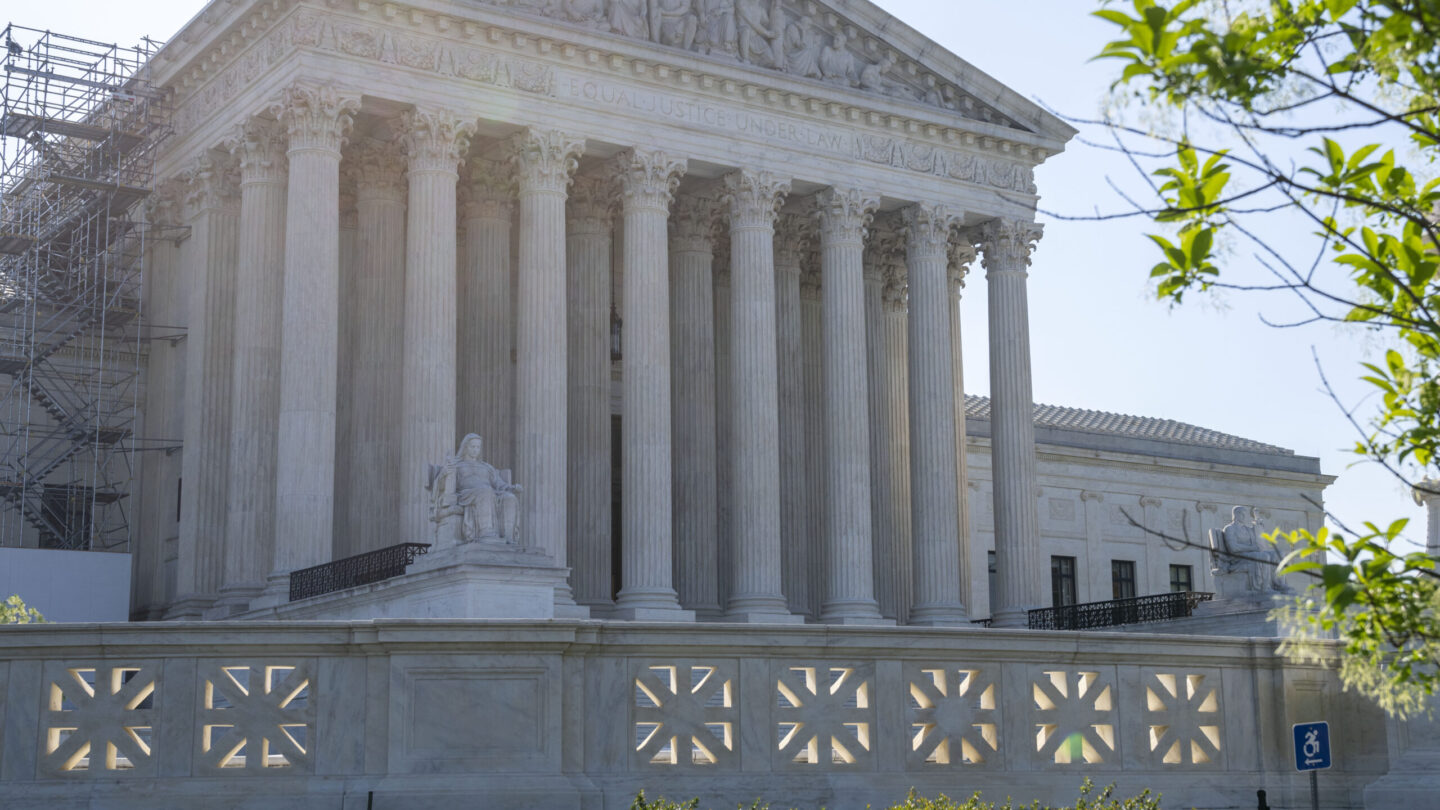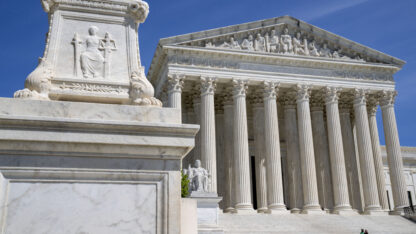The U.S. Supreme Court on Friday blocked lower court decisions banning or limiting the FDA approved use of the abortion pill mifepristone for the foreseeable future. But the justices, for now, left the case in the hands of the Fifth Circuit Court of Appeals, which has scheduled oral arguments in the case for May 17. However the Fifth Circuit rules, the case will almost certainly end up back at the Supreme Court, with the potential for a decision next term in the case.
The court’s action means that for now at least, the drug will be widely available, at least in those states where abortion is legal for up to 10 weeks.
The court’s action came on a vote of 7 to 2.
Dissenting were Justices Clarence Thomas and Samuel Alito
The latest legal clash over abortion began April 7 in Texas when federal district court Judge Matthew Kacsmaryk, a one-time anti-abortion activist, imposed a nationwide ban on mifepristone, declaring that the Food and Drug Administration had improperly approved the drug 23 years ago. Within minutes of that decision, federal judge William O. Rice in Washington state issued a contrary ruling. In a case brought by 17 states and the District of Columbia seeking to expand the use of mifepristone, Rice declared that the current FDA rules must remain in place.
On April 12, the case became even more procedurally convoluted when the Fifth Circuit Court of Appeals partially pulled back on the Texas ruling from Judge Kacsmaryk. Because the statute of limitations for challenging FDA approval of a drug had long passed, the appeals court ruled that mifepristone could continue to be used for up to seven weeks of pregnancy in states where abortion is legal. That despite the fact that the FDA has approved use of the pill for up to ten weeks of pregnancy. In addition, the appeals court sought to roll back rules adopted since 2015 that have facilitated access to abortion pills. Among them, rules that allow patients seeking abortion to obtain the drug by mail and rules allowing telemedicine appointments with doctors. Instead, the appeals court sought to reimpose rules not in effect since 2016, such as a rule requiring three in-person appointments for anyone using the drug and a ban on the cheaper, generic version of the drug.
There is little likelihood that the appeals court will substantially change its view after oral argument in the case. Its 42-page preliminary order is based, in part, on the Comstock Act, a law that for generations has not been enforced. Enacted in 1873, the statute sought to prevent the mailing of obscene or lewd materials, and to bar the mailing of any substance, article, or drug used for birth control or for the purpose of “unlawful abortion.”
Regardless of how the appeals court rules, though, there is certain to be an appeal from the Biden administration, on behalf of the FDA, and Danco Laboraties, maker of the leading brand name for mifepristone, Mifeprex. In briefs already filed, they note that medical abortions using pills account for the majority of abortions in the the U.S. today. And they cite dozens of studies and clinical trials showing that the drug is exceedingly safe for use up to 10 weeks of pregnancy.
Both the FDA and Danco assert that were the Fifth Circuit’s decision to become law, it would create “regulatory chaos across the country.” As Danco put it in its brief, The result would be “an untenable limbo,” not only for Danco, which could not legally market and distribute its drug, but for the FDA, for doctors, for women, some of whom use the drug when they miscarry, and for health care systems.
Copyright 2023 NPR. To see more, visit https://www.npr.org.
9(MDAxODM0MDY4MDEyMTY4NDA3MzI3YjkzMw004))

9(MDAxODM0MDY4MDEyMTY4NDA3MzI3YjkzMw004))








